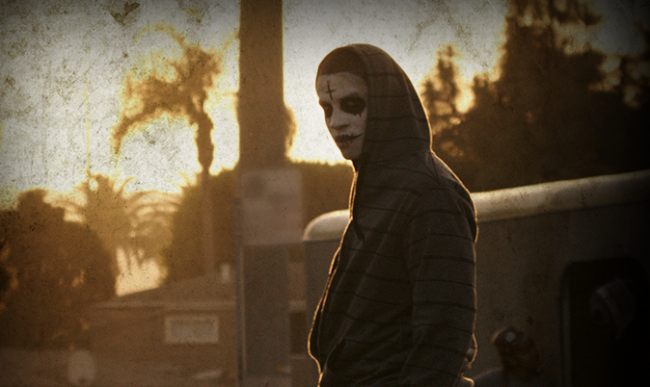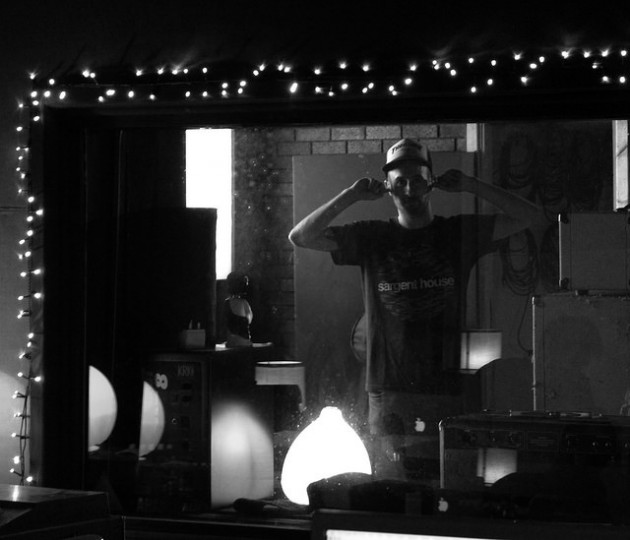2011’s The Purge, written and directed by relatively green film-maker James DeMonaco, was a concept in search of a movie. The ropey home invasion flick was built around an irresistibly trashy hook: in less than a decade from now, America is a sort of Tea Party NRA wonderland where, for one night a year, violent crime is legal. Murder is not just allowed, but promoted as a civil duty, all the name of spiritual self-renewal. It keeps the crime and population numbers down and the welfare rolls under control (dead people don’t claim the dole). The low-budget but decent-grossing film was successful enough to invite a sequel, providing DeMonaco the resources to flesh out the idea and presumably deliver something closer to his original vision. Hence the more ambitious Anarchy, which expands to the broader city of Los Angeles and adds new layers to the ‘purging’ mythology, but doesn’t stray far from the straight-to-DVD dumbness of the first film.
For all its newfound geographical expansiveness, Anarchy sticks to a similarly simple story structure: it’s the annual purge night, and a grizzled tough guy (Frank Grillo) has to guide a mother-daughter duo and a couple of dumb yuppies (including Friday Night Lights’ Zach Gilford) from point A to point B and keep them alive. Simplicity is fine, but there’s a deadening basicness to how the group’s journey plays out: instead of the urban Battle Royale the conceit promises, it’s basically a cat-and-mouse game between our hapless troupe and various gangs of hostile ‘purgers’. Once the film settles into its groove, it’s weirdly dull, with the characters being herded around the map and indulging in cheap script tricks for tension. Oh no, they’re trying to be quiet and there’s a rat sniffing at one of the girls! Oh no, their car’s broken down at the worst possible time, again! DeMonaco also does that dialogue cheat you sometimes see in underwritten scripts, when characters react to events by asking pointless questions because there isn’t a strong enough sense of who they are and how they actually would behave. Stop talking, start running!
There is an admirable attempt to beef up the concept’s satirical edge, the suggestions about the flags-and-Jaysus rhetoric acting as a cover for weapons profiteering and social cleansing (The Wire’s Michael K. Williams pops up as a foul-mouthed working-class militant) offering a mirror to the country’s present political tolerance for gun crime. As the saying goes, the rich are different to you and me, and purging is no exception. While the down-and-out fight it out in the street, the well-heeled ‘order in’ poor coloured folks for some convenient at-home murdering. The (literal) class warfare messaging is hardly subtle, but isn’t supposed to be a subtle sort of movie. The trouble is that without the requisite grit, black humour or self-awareness for flavour, the brashness is sort of inert. As much fun as it is to watch The Wire’s Omar gunning down champagne-quaffing socialites, DeMonaco mostly plays his dystopia with a straight-faced woodenness.
To give DeMonaco his due, Anarchy is a clear improvement over the original, and its fans should find the world-building stuff pretty satisfying. We might be seeing a viable franchise take form here, and if so it’ll probably take another film or two before DeMonaco settles on a story that really delivers. His sophomoric go-around has many of the conventional failings of so-called B-movies but little of their redemptive grubby charm. The core concept demands a film with more guts and a willingness to go to madder, more tonally disturbing places. It’s a tame sort of anarchy. Conor Smyth






